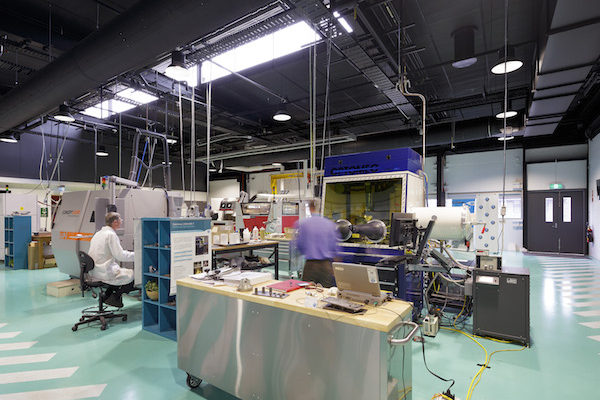The future is bright and bold for advanced manufacturing

Medium enterprises need to capitalise on science and technology innovations to ensure survival in a rapidly evolving manufacturing sector.
Contrary to popular belief Australian manufacturing isn’t dying, it is evolving. The sector is a thriving component of our economy and medium enterprises need to capitalise on research and development if they want the sector to survive and compete in global markets.
The main challenge for Australia is our small to medium enterprise dominated market means many businesses are not in a position to capitalise on the latest scientific research or technological advances required to ensure their survival.
By having a relatively small domestic market we also can be poorly connected to global value chains.
When we invest in science and technology the end game is to translate new ideas into products appealing to global value chains. If these ideas are to unlock opportunities we must increase collaboration in Australia between industry, research organisations and governments.
Australia has number of globally competitive advanced manufacturers that started out as SMEs such as Cochlear, Marand, GP Graders, Medical Developments International, Oventus and ANCA Tools to name a few. Their success has come from products developed with Australian researchers.
Collaboration needs to be customer-focused and the research community should be leading this to better align with industry needs. Government budget initiatives and funding schemes such as CRCs, CRC-P, Innovation Connections, Industry Growth Centres and CSIRO initiatives such as the Kickstart Program or the Lindfield Innovation Hub can play a role in achieving this customer-focus but are often complex and lack visibility to companies.
The Prime Minister’s Industry4.0 Taskforce, has been working closely with Germany in relation to Industry4.0 and it is essential that Australian companies grasp this opportunity. The Advanced Manufacturing Growth Centre and the Innovative Manufacturing CRC, as well as company providers, are working to develop programs to educate Australian businesses in this particular area. Other skills in leadership, strategic management and customer skills are also absolutely necessary.
To continue the upward trend in Australian manufacturing, we need to ensure new skillsets match growth.
There is a need to ensure both STEM demand and the matching skills able to address knowledge gaps in advanced manufacturing including robotics, automation, advanced materials, design and digital skills. The digitisation of the economy and, in particular, the opportunities resulting from the industrial internet or Industry4.0 must also be addressed.
Manufacturing is changing rapidly with the realisation that there is often more value in what happens before and after the production line. The reality is manufacturing production is already, and will increasingly be, automated or outsourced, and we need to focus on the value that is created through high-tech or customised products and accompanying services.
According to Ai Group’s Performance of Manufacturing Index for August, the Australian manufacturing sector has expanded for the 11th consecutive month. This proves we are seeing growth in a sector which already provides direct jobs for 860,000 people and hundreds of thousands more in support industries.
A highly integrated, collaborative, globally connected ecosystem that provides high-value customised solutions within global value chains can be the future for Australian manufacturing but only if we grasp the opportunity.
Dr Keith McLean is the Director of CSIRO Manufacturing a multi-disciplinary research group seeking to develop collaborative solutions for Australian manufacturing companies.












